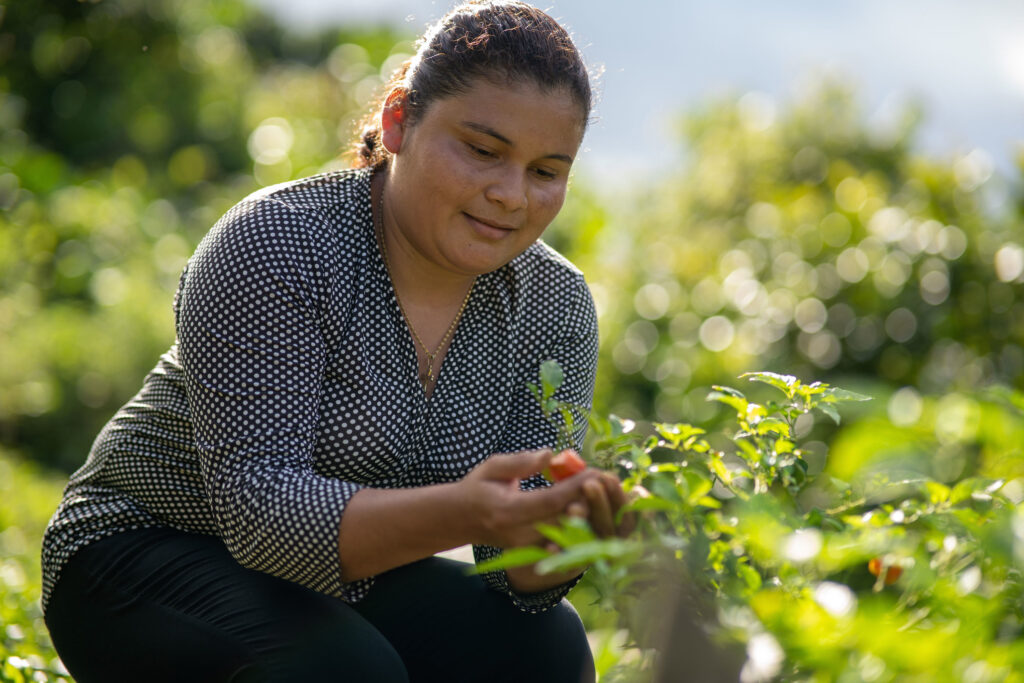During the 66th edition of United Nations’ Commission on the Status of Women, Laura Fernández Lord, BBVA Microfinance Foundation’s head of Sustainability and Women Empowerment noted that “making innovative solutions accessible to women under vulnerable conditions so they could apply climate change adaptation measures and access technical assistance and digitalization, could increase their performance up to 30% and lift 150 million people out of poverty.”
As a frequent participant, the BBVAMF once again shared its experience in driving women’s economic and social development. Inclusion, environmental sustainability, gender equality and digitalization are its main priorities to foster the sustainable development of the 2.8 million vulnerable entrepreneurs served in Latin America, almost 60% of whom are women.
The CSW is the major international intergovernmental body focused exclusively on promoting gender equality and women’s empowerment. This year, it focused on the effects of Climate Change and Disaster Risk Reduction, together with gender equality as key factors to accomplish an inclusive and sustainable economic reactivation.
In this sense, Fernández Lord has emphasized financial inclusion as “an efficient tool to increase economic empowerment as well as to protect the environment, but only 10% of women in the region have access to financing.”
Pandemic and climate change
COVID-19 and climate change have broadened gender gaps and have increased care work, cutting back women’s capacity to fully contribute to the economy.
“In Latin America, 60 million rural women still greatly depend on natural resources, but they lack means to face these challenges”, Laura explained. Because of this, the BBVAMF offers, through green microfinance, “a wide range of products and services that allow them to reduce their vulnerability and build their resilience to climate change.”

Oris Ruiz, Panamian entrepreneur
Our data show that when women are given a chance, they are more willing to implement sustainable solutions to their activities, compared to men
“We offer financing to rural women without needing land deeds; loans and skills training to push for climate change mitigation and adaptation measures and for the use of green power, water sewage programs and innovative agricultural and climatic microinsurance to protect their investments and crops in the face of natural disasters”, she further explained.
Furthermore, she highlighted the concern about “the amount of non-paid jobs borne by our women entrepreneurs ”given that it is one of the most important blockages for their economic independence. “During the past two years, we have also assessed how female heads of households demand more of our services.”
A great opportunity for women
Considering the lack of social protection for the women entrepreneurs working informally, plus the health and care crisis caused by COVID-19, the BBVAMF launched “a range of health microinsurance that costs less than 1USD monthly, which covers breast and uterus cancer diagnosis, among others that covers these women’s health and that of their families’. Also available is the maternity microinsurance that provides economic support during lactation period.”
Fernández Lord also added that the Foundation is currently designing “skills training programs to bring them closer to new opportunities of the care economy so they can open formal businesses in the sector and contribute to reactivating the economy”
Lastly, she made an appeal to “increase financing and training to launch formal care-related activities to increase regional GDP to 25%. We should take this great economic opportunity for women”, she concluded.

